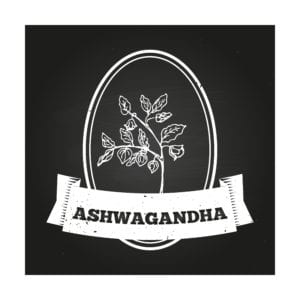Written by Greg Arnold, DC, CSCS. Eight weeks of supplementation with Ashwagandha significantly improved TSH, T3 and T4 in the participating subjects compared to the control.
 Subclinical hypothyroidism (SCH) is a thyroid disorder without the obvious symptoms of thyroid deficiency. Often a precursor to Hashimoto’s thyroiditis (a chronic autoimmune disorder), CSH is characterized by elevated thyroid stimulating hormone (TSH) despite normal serum thyroxin (T4) 1 and occurs in 3-8% of the total population with a 3.6 – 7% higher prevalence in females. 2,3
Subclinical hypothyroidism (SCH) is a thyroid disorder without the obvious symptoms of thyroid deficiency. Often a precursor to Hashimoto’s thyroiditis (a chronic autoimmune disorder), CSH is characterized by elevated thyroid stimulating hormone (TSH) despite normal serum thyroxin (T4) 1 and occurs in 3-8% of the total population with a 3.6 – 7% higher prevalence in females. 2,3
The prescription medication, levothyroxine (“synthroid”), is a controversial medical treatment for SCH, and has practical application only when TSH levels exceed 10.0uIU/L 4,5 Thus, researchers inspired to look at complementary and alternative treatment protocols, chose Ashwagandha as a study candidate. Ashwagandha is an adaptogenic herb that is well known for its ability to increase feelings of vitality 6 and alleviate anxiety and stress. 7
A 2017 Indian study 8 was conducted with 50 participants (25 males, 25 females), aged 27-43, who had elevated serum thyroid stimulating hormone levels (4.5–10 micro-International Units/Liter) but who were not on thyroid medication. They received an 8-week supplementation of either 300 mg Ashwagandha root extract taken twice daily (n= 25) or a placebo of starch capsules (n= 25). Blood samples were drawn before and after the intervention to measure thyroid function.
After 8 weeks, those who supplemented with ashwaganda root extract had statistically significant changes in 3 measures of thyroid health:
| Ashwagandha | p - value | Placebo | p - value | p – value between groups | |
|---|---|---|---|---|---|
| T3:ITT Ratio | 41.5% increase (1.18 to 1.67) | < 0.001 | 3.2% decrease (1.26 to 1.22) | 0.007 | 0.0031 |
| T4:PP Ratio | 20.8% increase (95.32 to 115.22) | < 0.001 | 4.7% increase (92.47 to 96.85) | 0.467 | 0.0096 |
| TSH:PP Ratio | 18.9% decrease (6.51 to 5.28) | < 0.001 | 5% increase (6.79 to 7.13) | 0.727 | 0.001 |
Ashwagandha root extract when taken for 8 weeks significantly improved serum T3, T4, and TSH compared to placebo. In fact, according to researchers, significant improvements seen in the Ashwagandha group improved overall thyroid function to an “effectively normalized” level. In addition, only one subject in the Ashwagandha group reported any adverse events which were classified as “mild and temporary” (fever, cough, and headache) compared to three in the placebo group. This is a pilot study with small sample size and short duration; therefore, longer study duration and larger participant numbers are necessary to adequately monitor T4 levels and to determine the underlying mechanisms of ashwagandha.
Source: Sharma, Ashok Kumar, Indraneel Basu, and Siddarth Singh. “Efficacy and Safety of Ashwagandha Root Extract in Subclinical Hypothyroid Patients: A Double-Blind, Randomized Placebo-Controlled Trial.” The Journal of Alternative and Complementary Medicine (2017).
© Mary Ann Liebert, Inc.
Posted November 28, 2017.
References:
- NCBI. Thyroid Cancer. 2017; Overview of Thyroid Cancer. Available at: https://www.ncbi.nlm.nih.gov/pubmedhealth/PMHT0021892/. Accessed November 22, 2017, 2017.
- Michael W, Tunbridge G, Vanderpump MP. Population screening for autoimmune thyroid disease. Endocrinology and Metabolism Clinics of North America. 2000;29(2):239-254.
- Chistiakov DA. Immunogenetics of Hashimoto’s thyroiditis. Journal of Autoimmune Diseases. 2005;2(1):1.
- Dai DZ, Hu HJ, Yang DM, et al. Chronic levothyroxin treatment is associated with ion channel abnormalities in cardiac and neuronal cells. Clinical and experimental pharmacology and physiology. 1999;26(10):819-821.
- Panebianco P, Rosso D, Destro G, et al. Use of disphosphonates in the treatment of osteoporosis in thyroidectomized patients on levothyroxin replacement therapy. Archives of gerontology and geriatrics. 1997;25(2):219-225.
- Mishra L-C, Singh BB, Dagenais S. Scientific basis for the therapeutic use of Withania somnifera (ashwagandha): a review. Alternative medicine review. 2000;5(4):334-346.
- Chandrasekhar K, Kapoor J, Anishetty S. A prospective, randomized double-blind, placebo-controlled study of safety and efficacy of a high-concentration full-spectrum extract of Ashwagandha root in reducing stress and anxiety in adults. Indian journal of psychological medicine. 2012;34(3):255.
- Sharma AK, Basu I, Singh S. Efficacy and Safety of Ashwagandha Root Extract in Subclinical Hypothyroid Patients: A Double-Blind, Randomized Placebo-Controlled Trial. The Journal of Alternative and Complementary Medicine. 2017.

